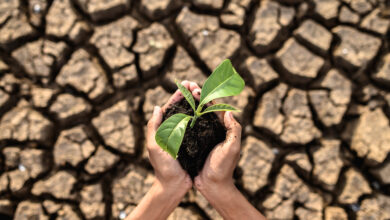Shopping 101: How To Be A Conscious Consumer?

Effective ways to be sustainable during shopping even whilst being on a budget.
We live in a highly materialistic world, where people are too busy accumulating stuff that they might not even need. But, we often forget to think about the huge impact this mindless shopping has on our environment.
Even without much money, it’s easy to accumulate things. But there has been a push for more mindful consumption, from the rise of minimalism to businesses making risky decisions in the name of sustainability.
What do we actually mean by this, though? Conscientious consumption, sustainability, and social responsibility are terms that are frequently used interchangeably, but some of these terms have more precise definitions than others.
To engage in the economy with greater awareness of how your consumption affects society as a whole is to engage in conscious consumption, which is a catch-all term. One method of increasing conscious consumption is to shop sustainably with the goal of protecting the environment.
Through this blog article, you will learn a few tips to become a mindful consumer.
1. Buy from certified brands.
Many companies display sustainability and eco-friendly labels on their goods and websites, but we must be cautious and make sure that these labels are actually genuine certifications and not just greenwashed marketing.
Try to purchase products from companies that are proud to support environmental causes and that have definite, practical sustainability plans. Any company that manufactures goods with ethical labor practices and minimal waste is worth supporting.
2. Reduce your footprint.

The amount of greenhouse gases, specifically carbon dioxide, released during an activity is referred to as the carbon footprint. The same applies to plastic and other environmental pollutants.
The E.P.A.’s Carbon Footprint Calculator and The Nature Conservancy’s Carbon Calculator can help you determine how much of an impact your individual actions and daily routine have on the environment.
A few adjustments to your lifestyle can play a huge role in reducing your footprint by a considerable amount.
3. Buy quality goods whenever you can.

The production of polyester for textiles results in the release of trillion pounds of greenhouse gases. Organic materials also contribute to climate change even though they are less destructive.
4. Go thrifting, and shop secondhand.
Increased production and consumption are the main issues. It’s not necessary for your consumption to increase production. Consider purchasing retail items that are made to last a long time. Although fast fashion brands are more affordable, you can still save money and reduce waste by shopping secondhand.
5. Minimalism is trendy.

A key component of conscious consumption is questioning how and how much we consume in the first place. Saving money is one advantage, but minimalism also pushes us to live more sparingly. It’s understandable why minimalism is having a moment when you consider the effects of consumer waste on the environment.
Although reducing one’s carbon footprint alone won’t stop climate change, individual action can help influence those in positions of authority. You don’t have to be the perfect consumer; many of us could stand to improve just a little.
If something you already own needs to be replaced, consider having it repaired first. When shopping, consider whether you actually need or want the item. You are accountable for everything you own, so take a moment to consider how you will use each item before purchasing it.
The Bottomline
Customers are also more interested in purchasing sustainable goods as they become more aware of how consumer goods affect their bodies and the environment.
Being a conscious consumer may not always be easy to understand from the perspective of an individual. What long-term impact would using organic soap or abstaining from a business known for using sweatshops have? However, when all the individual actions are combined, there are significant changes in the overall situation.






